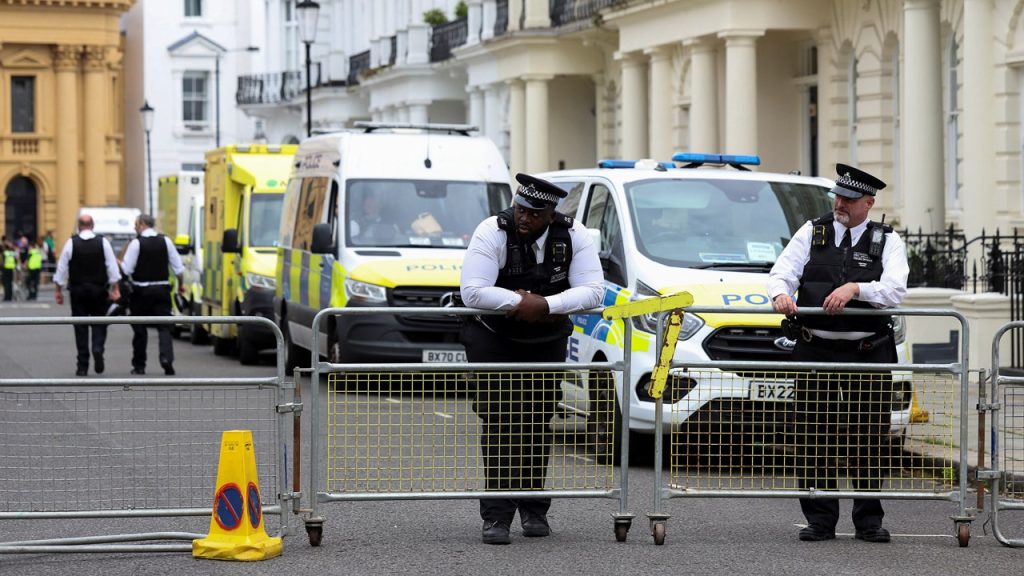Three people were stabbed during the opening day of the Notting Hill Carnival in London, with one still in life-threatening condition. The London Metropolitan Police Service reported the stabbings and also mentioned that 15 officers were assaulted, though none sustained serious injuries. Police made 90 arrests for various offenses, including assault, possession of offensive weapons, sexual offenses, theft, robbery, drugs-related offenses, and more. Authorities were authorized to order the removal of face coverings used to conceal identities, with consequences for refusal including possible arrest.
The Notting Hill Carnival, one of the world’s biggest celebrations of Caribbean music and culture, attracts hundreds of thousands of revelers each year. The festival, which took place on August 25-26, includes colorful floats, calypso dancers in elaborate costumes, steel bands, and sound systems, and has a rich history dating back to 1958. The event was launched by Trinidadian human rights activist Claudia Jones in response to racist attacks on Black people in the Notting Hill neighborhood. Beginning with a few Trinidadian steel bands in 1964, the carnival has grown into a massive annual street party that celebrates diversity and cultural heritage.
The police presence at the carnival was part of a carefully planned operation to ensure the safety of attendees, but incidents of violence occurred. In addition to the stabbings, assaults on officers and arrests for various offenses were reported. While some came to enjoy the festivities, a minority engaged in criminal behavior, causing disruptions to the event. Police reported that emergency workers were assaulted, weapons were seized, and drugs-related offenses were prevalent. This highlights the challenges faced by law enforcement in maintaining public order during large-scale events like the Notting Hill Carnival.
The importance of safety and security at public gatherings was underscored by the incidents that occurred during the carnival. With the potential for violence and criminal activity, law enforcement agencies must be vigilant in their efforts to prevent harm and protect the public. The enforcement of regulations, such as the removal of face coverings, is essential for maintaining order and ensuring that individuals are held accountable for their actions. The authorities’ response to the incidents at the carnival demonstrates the need for effective policing strategies and a robust law enforcement presence at major events.
Despite the challenges faced by law enforcement, the Notting Hill Carnival remains a significant cultural event that celebrates diversity and community spirit. The festival’s origins in response to racial tensions and its evolution into a vibrant celebration of Caribbean culture showcase the power of unity and resilience. As the carnival continues to grow in popularity, it is essential for organizers, authorities, and attendees to work together to ensure a safe and enjoyable experience for all. With proper planning and cooperation, the Notting Hill Carnival can continue to be a symbol of harmony and cultural exchange for years to come.
In conclusion, the incidents of violence at the Notting Hill Carnival underscore the importance of security measures and law enforcement efforts to maintain public safety at large-scale events. While the festival serves as a celebration of Caribbean culture and community spirit, the risks associated with criminal activity require a coordinated response from authorities. By addressing issues such as violence, drug-related offenses, and assaults on emergency workers, law enforcement can work to ensure that the carnival remains a positive and safe experience for all attendees. As the Notting Hill Carnival continues to evolve and grow, it is essential for stakeholders to prioritize safety and compliance with regulations to preserve the festival’s rich heritage and cultural significance.


